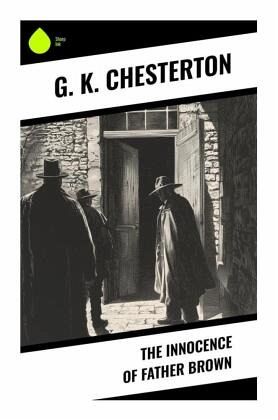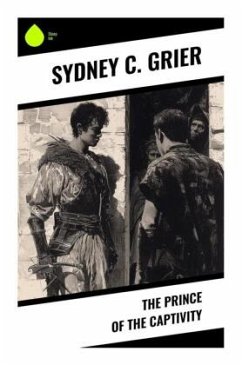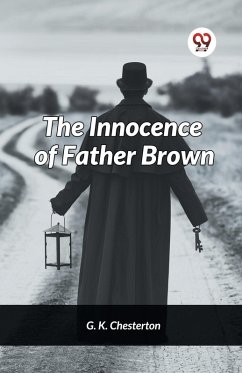
The Innocence of Father Brown
Versandkostenfrei!
Versandfertig in 6-10 Tagen
10,30 €
inkl. MwSt.

PAYBACK Punkte
0 °P sammeln!
In "The Innocence of Father Brown," G. K. Chesterton crafts a captivating collection of detective stories centered around the astute yet humble cleric, Father Brown. Using a blend of engaging narrative and clever dialogue, Chesterton deftly interweaves themes of morality, redemption, and the complexity of human nature. The stories, characterized by their distinctive charm and wit, reflect the early 20th-century literary tradition of the detective genre, marked by a departure from the archetypal hardboiled sleuth, offering instead a protagonist whose spiritual insight reveals the deeper motivat...
In "The Innocence of Father Brown," G. K. Chesterton crafts a captivating collection of detective stories centered around the astute yet humble cleric, Father Brown. Using a blend of engaging narrative and clever dialogue, Chesterton deftly interweaves themes of morality, redemption, and the complexity of human nature. The stories, characterized by their distinctive charm and wit, reflect the early 20th-century literary tradition of the detective genre, marked by a departure from the archetypal hardboiled sleuth, offering instead a protagonist whose spiritual insight reveals the deeper motivations behind crime. G. K. Chesterton was a prolific writer and a prominent figure in early 20th-century literature, known for his philosophical and theological explorations. His background in journalism and his deep Catholic faith significantly influenced his writing, providing a lens through which he saw the world. "The Innocence of Father Brown," first published in 1911, reflects his beliefin the compatibility of faith and reason, as well as the idea that true understanding often comes not from mere observation but from a profound empathy towards others. This collection is highly recommended for readers seeking a refreshing take on the detective genre, where logic meets compassion. Chesterton's ability to blend mystery with moral inquiry invites readers to ponder the nature of good and evil, making it not only an entertaining read but also a thought-provoking exploration of the human condition.












